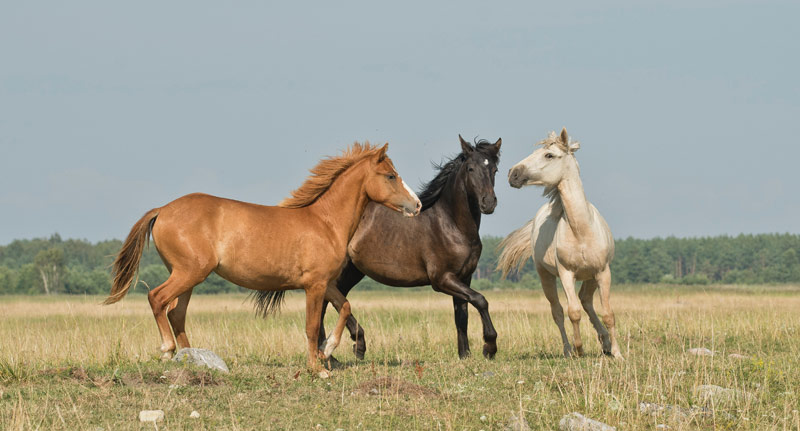Biotin is part of the B-complex group of vitamins and it is known for supporting nutrients for many functions in a horse’s body, including: fatty acid synthesis, protein and energy metabolism and cell proliferation.
Your horse has access to two sources of natural biotin. Biotin is contained in most feeds and forages, particularly green fresh forages. In addition, the bacteria in a healthy horses’ gut produce biotin which is made available to the horse. Therefore a horse on a forage based diet with a healthy gut should not need to be supplemented with biotin. Often, horse owners turn straight to biotin to improve hoof quality. However, it is unlikely a biotin deficiency is causing your horses’ hoofs to be low quality, which means biotin isn’t going to fix it.
Grains such as oat, barley, and soybean meals only provide moderate concentrations of Biotin and the lowest levels are found in corn. Because of this, some formulated feeds usually add Biotin but it is typically less than 1mg per day on an as feed basis.
Good quality vs Poor quality hooves
While supplementing with biotin may seem a good solution to improve hoof quality, it won’t help if the rest of your horses’ diet is unbalanced. Feed a completely balanced diet, minerals like copper, zinc and good quality protein all need to be in the horses’ diet in balanced quantities for the horse to grow quality hooves.
1. Balance your horses’ diet, it should take around 3-6 months before you start to see a positive effect.
2. Base your horses’ diet as much as possible on good quality forage.
3. Avoid feeding uncooked grains as these can upset the bacteria balance in the hind gut and reduce their natural production of biotin.
Horses without the added stresses of growth, hard work or poor skin and hoof condition generally receive enough Biotin through their forage and grains. In horses with higher Biotin demands supplements typically offer 5 to 25 mg of Biotin per daily serving.
It’s important to remember that a horses’ hoof takes a year to grow. If improvements are being seen within 8 to 15 months, the horse will need to remain on Biotin for the rest of its useful life to maintain improved hoof conditions.
Adverse Effects of Biotin
Currently there is no adverse effects that have been reported when using it on horses.

